-
 Bitcoin
Bitcoin $105,555.6614
0.18% -
 Ethereum
Ethereum $2,536.3674
-0.57% -
 Tether USDt
Tether USDt $1.0005
0.00% -
 XRP
XRP $2.1544
-0.29% -
 BNB
BNB $649.0999
-0.39% -
 Solana
Solana $145.9223
-0.54% -
 USDC
USDC $0.9998
0.00% -
 Dogecoin
Dogecoin $0.1768
-0.58% -
 TRON
TRON $0.2719
0.43% -
 Cardano
Cardano $0.6301
-1.20% -
 Hyperliquid
Hyperliquid $40.0448
-4.99% -
 Sui
Sui $2.9955
-1.70% -
 Bitcoin Cash
Bitcoin Cash $442.7020
1.14% -
 Chainlink
Chainlink $13.2320
-0.24% -
 UNUS SED LEO
UNUS SED LEO $9.1712
1.44% -
 Avalanche
Avalanche $19.0911
-1.17% -
 Stellar
Stellar $0.2579
-0.94% -
 Toncoin
Toncoin $2.9630
-2.01% -
 Shiba Inu
Shiba Inu $0.0...01207
-0.53% -
 Litecoin
Litecoin $85.9706
-0.39% -
 Hedera
Hedera $0.1539
-2.88% -
 Polkadot
Polkadot $3.7888
-0.80% -
 Ethena USDe
Ethena USDe $1.0003
-0.03% -
 Monero
Monero $316.7214
1.57% -
 Dai
Dai $0.9999
0.01% -
 Bitget Token
Bitget Token $4.5297
-0.64% -
 Pepe
Pepe $0.0...01110
-0.70% -
 Uniswap
Uniswap $7.3274
-1.89% -
 Pi
Pi $0.6167
5.17% -
 Aave
Aave $275.7526
-3.57%
What are the advantages of Schnorr signature over ECDSA signature?
Schnorr signatures provide significant advantages over ECDSA signatures, including smaller signature sizes, faster verification times, and resistance to malleability attacks, making them well-suited for cryptocurrency applications.
Feb 21, 2025 at 03:54 am
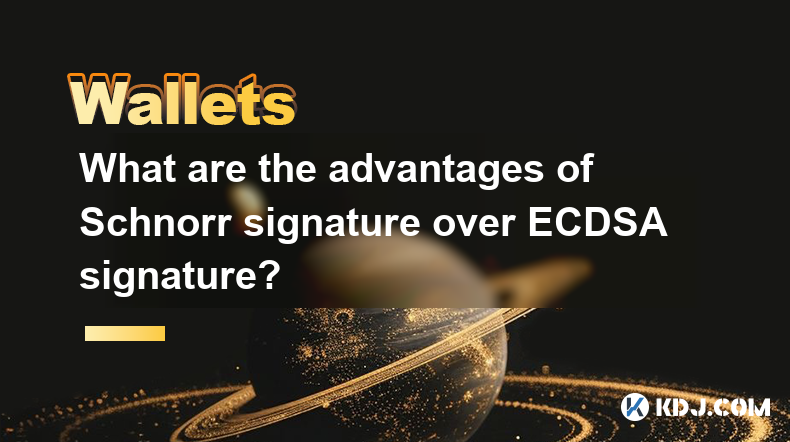
Key Points
Schnorr signatures offer several advantages over ECDSA signatures, including:
- Smaller signature size
- Faster verification times
- Resistance to malleability attacks
- Support for multi-signatures
- Schnorr signatures are well-suited for use in cryptocurrency applications, where efficiency and security are of paramount importance.
Advantages of Schnorr Signature over ECDSA Signature
Smaller Signature Size:
Schnorr signatures are significantly smaller than ECDSA signatures. This advantage is particularly important for blockchain applications, where transaction data is stored permanently on the public ledger. Smaller signature sizes result in lower transaction fees and increased blockchain scalability.
Faster Verification Times:
Schnorr signatures can be verified much faster than ECDSA signatures. This speed advantage is critical for high-throughput blockchain networks, where transactions need to be processed quickly and efficiently. Faster verification times also enhance the user experience, reducing latency and improving overall transaction speeds.
Resistance to Malleability Attacks:
Schnorr signatures are resistant to malleability attacks, which involve modifying a signature without invalidating it. This property is crucial for cryptocurrency applications, as it prevents malicious actors from manipulating transaction data to compromise the integrity of the blockchain.
Support for Multi-Signatures:
Schnorr signatures support multi-signatures, which allow multiple parties to sign a single transaction. This feature is essential for multi-party agreements and complex financial transactions, enabling secure and transparent collaboration among multiple entities.
Suitability for Cryptocurrency Applications:
The advantages of Schnorr signatures make them well-suited for use in cryptocurrency applications. Their compact size, fast verification times, resistance to malleability attacks, and support for multi-signatures enhance the efficiency, security, and flexibility of blockchain-based systems.
FAQs
Q: What is the mathematical basis behind Schnorr signatures?
A: Schnorr signatures are based on the discrete logarithm problem, which is considered computationally difficult to solve. The security of Schnorr signatures relies on the assumption that factoring large prime numbers is intractable.
Q: How do Schnorr signatures differ from other signature algorithms?
A: Schnorr signatures are nondeterministic, meaning that they produce different signatures for the same message each time they are generated. This property provides additional security against forgery attempts.
Q: What is the significance of Schnorr signatures for the future of cryptocurrencies?
A: Schnorr signatures are expected to play a significant role in the development of more efficient, secure, and scalable cryptocurrency ecosystems. Their adoption can reduce transaction costs, improve transaction speeds, and enhance the security of blockchain-based applications.
Disclaimer:info@kdj.com
The information provided is not trading advice. kdj.com does not assume any responsibility for any investments made based on the information provided in this article. Cryptocurrencies are highly volatile and it is highly recommended that you invest with caution after thorough research!
If you believe that the content used on this website infringes your copyright, please contact us immediately (info@kdj.com) and we will delete it promptly.
- PayPal Clears SEC Stablecoin Probe, Expands Crypto Access
- 2025-06-15 13:25:12
- Bitcoin (BTC) Realized Market Cap Hits All-Time High, Signalling a Bullish Rally Ahead
- 2025-06-15 13:25:12
- Qubetics Emerges as the Best Altcoin to Buy now in 2025, Outpacing XRP, Cosmos, Monero, and Polygon
- 2025-06-15 13:22:25
- New Mexico's Roswell Becomes the First US City to Adopt Bitcoin as Its Reserve Asset
- 2025-06-15 13:22:25
- Bitcoin (BTC) Price Soars Over 10% as Investors Rush to Buy the Crypto
- 2025-06-15 13:10:12
- Should You Keep Holding Kaspa Tokens Despite the Scary Price Action?
- 2025-06-15 13:10:12
Related knowledge
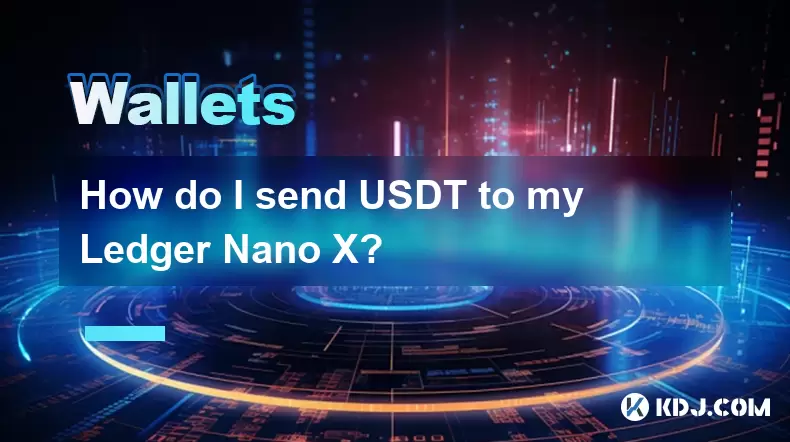
How do I send USDT to my Ledger Nano X?
Jun 15,2025 at 06:28am
What is USDT and Why Use Ledger Nano X?USDT, also known as Tether, is one of the most widely used stablecoins in the cryptocurrency ecosystem. It operates on various blockchain networks such as Ethereum (ERC-20), Tron (TRC-20), and others, offering users a digital asset pegged 1:1 to the US dollar. When it comes to storing USDT securely, hardware wallet...
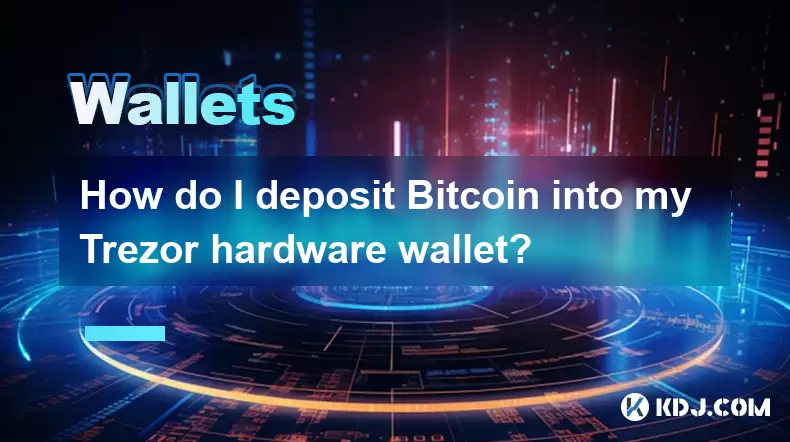
How do I deposit Bitcoin into my Trezor hardware wallet?
Jun 14,2025 at 12:29pm
What is a Trezor Hardware Wallet?A Trezor hardware wallet is a secure device designed to store cryptocurrencies offline, protecting them from online threats. Unlike software wallets, which are vulnerable to hacking and malware, Trezor stores private keys on the physical device itself. This ensures that transactions can only be approved by physically int...
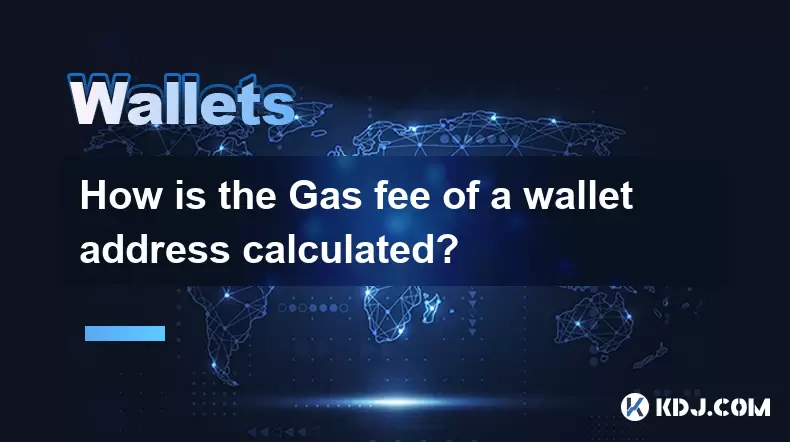
How is the Gas fee of a wallet address calculated?
Jun 14,2025 at 07:57pm
Understanding the Basics of Gas Fees in Blockchain TransactionsIn the cryptocurrency ecosystem, particularly within Ethereum-based networks, a Gas fee is an essential component of executing transactions or smart contract operations. The Gas fee serves as compensation for miners or validators who process and confirm transactions on the blockchain. It is ...
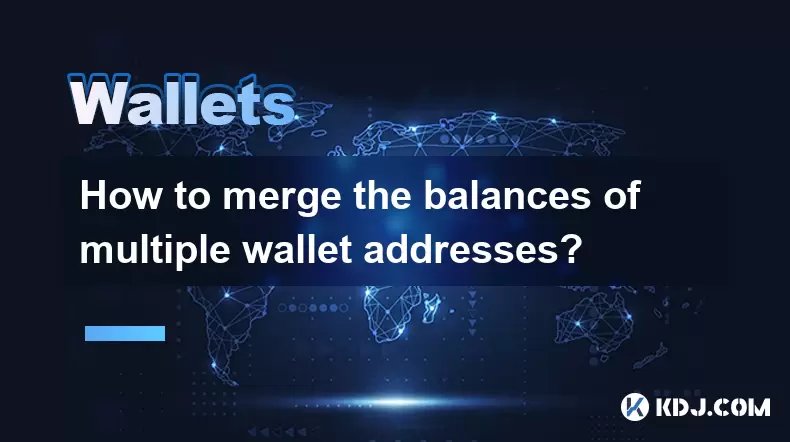
How to merge the balances of multiple wallet addresses?
Jun 13,2025 at 06:21pm
Understanding the Concept of Merging Wallet BalancesMerging the balances of multiple wallet addresses involves consolidating funds from different cryptocurrency wallets into a single address or account. This process is commonly undertaken by users who manage several wallets for security, diversification, or organizational purposes. Merging balances can ...
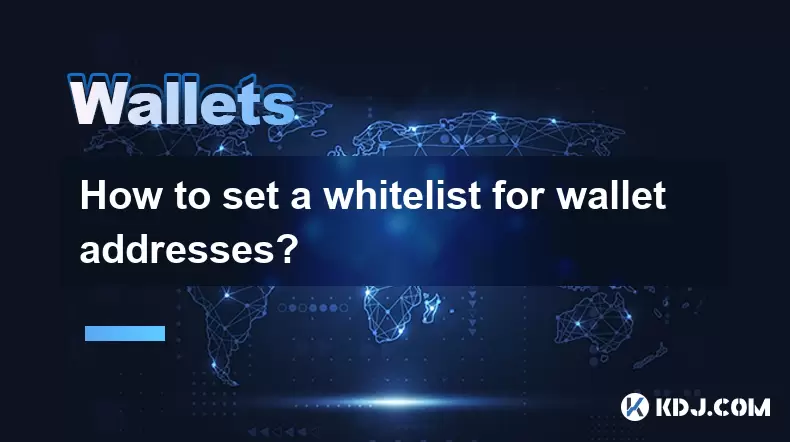
How to set a whitelist for wallet addresses?
Jun 15,2025 at 03:14am
Understanding the Concept of a Whitelist in BlockchainIn the realm of blockchain technology, a whitelist refers to a predefined list of approved entities—in this case, wallet addresses—that are granted access or permissions within a system. This mechanism is commonly used during token sales (ICOs/IDO), NFT minting events, and smart contract interactions...
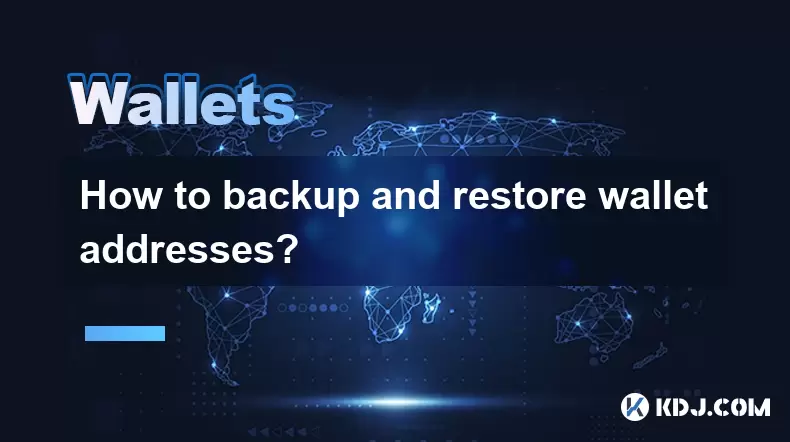
How to backup and restore wallet addresses?
Jun 14,2025 at 03:21pm
Understanding Wallet Addresses in CryptocurrencyIn the world of cryptocurrency, a wallet address is a unique identifier that allows users to send and receive digital assets. It functions similarly to an email address or bank account number. Each wallet address is associated with a private key, which grants access to the funds stored at that address. Los...

How do I send USDT to my Ledger Nano X?
Jun 15,2025 at 06:28am
What is USDT and Why Use Ledger Nano X?USDT, also known as Tether, is one of the most widely used stablecoins in the cryptocurrency ecosystem. It operates on various blockchain networks such as Ethereum (ERC-20), Tron (TRC-20), and others, offering users a digital asset pegged 1:1 to the US dollar. When it comes to storing USDT securely, hardware wallet...

How do I deposit Bitcoin into my Trezor hardware wallet?
Jun 14,2025 at 12:29pm
What is a Trezor Hardware Wallet?A Trezor hardware wallet is a secure device designed to store cryptocurrencies offline, protecting them from online threats. Unlike software wallets, which are vulnerable to hacking and malware, Trezor stores private keys on the physical device itself. This ensures that transactions can only be approved by physically int...

How is the Gas fee of a wallet address calculated?
Jun 14,2025 at 07:57pm
Understanding the Basics of Gas Fees in Blockchain TransactionsIn the cryptocurrency ecosystem, particularly within Ethereum-based networks, a Gas fee is an essential component of executing transactions or smart contract operations. The Gas fee serves as compensation for miners or validators who process and confirm transactions on the blockchain. It is ...

How to merge the balances of multiple wallet addresses?
Jun 13,2025 at 06:21pm
Understanding the Concept of Merging Wallet BalancesMerging the balances of multiple wallet addresses involves consolidating funds from different cryptocurrency wallets into a single address or account. This process is commonly undertaken by users who manage several wallets for security, diversification, or organizational purposes. Merging balances can ...

How to set a whitelist for wallet addresses?
Jun 15,2025 at 03:14am
Understanding the Concept of a Whitelist in BlockchainIn the realm of blockchain technology, a whitelist refers to a predefined list of approved entities—in this case, wallet addresses—that are granted access or permissions within a system. This mechanism is commonly used during token sales (ICOs/IDO), NFT minting events, and smart contract interactions...

How to backup and restore wallet addresses?
Jun 14,2025 at 03:21pm
Understanding Wallet Addresses in CryptocurrencyIn the world of cryptocurrency, a wallet address is a unique identifier that allows users to send and receive digital assets. It functions similarly to an email address or bank account number. Each wallet address is associated with a private key, which grants access to the funds stored at that address. Los...
See all articles

























































































